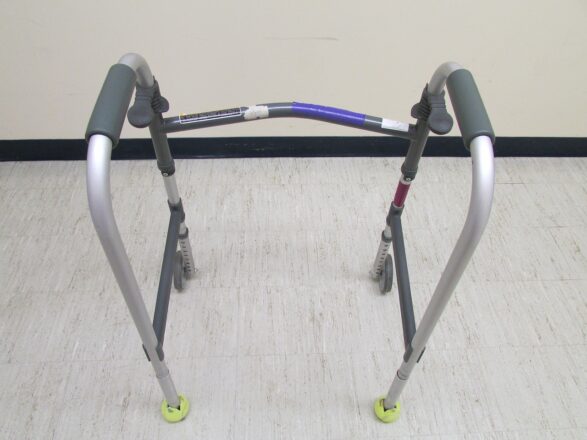Step into the world of a home health aide and discover how they provide invaluable support to patients who choose the comfort of their homes over medical facilities. By assisting those with disabilities, chronic issues, and those recovering from surgical procedures, home health aides are often the backbone of a care plan, ensuring patients follow doctors’ orders. The versatile role includes monitoring vital signs, managing medication, providing personal care, and even running errands.
As the demand for home health aides accelerates, this undervalued profession offers robust employment prospects and a rewarding pathway for those seeking a career in healthcare without the expenses of prolonged degree programs. Working as a home health aide means going beyond the medical requirements and fostering a genuine human connection, providing quality of life services that prove to be crucial for patients’ overall wellbeing.
Understanding the Role of a Home Health Aide
As our population continues to age, a role that is steadily rising in demand is that of a home health aide. According to the Bureau of Labor Statistics, the need for home health aides is projected to rise by a remarkable 40% from the years 2016 to 2026. This substantial rise reflects a growing trend: more elderly individuals are opting to ‘age in place’. Simply put, they choose to remain in the comfort and familiarity of their own homes.
The Increasing Demand for Home Health Aides
This so-called ‘ageing in place’ trend gives rise to a greater need for home health aides. Your role as a home health aide is invaluable, for you provide vital services to those requiring medical attention between visits to their primary healthcare providers. These patients may include those living with disabilities, long- or short-term illnesses or impairments, and even those recuperating at home following medical procedures.
Primary Function of Home Health Aides
The primary function of a home health aide is to ensure their patients adhere to the specific orders given by their doctors. This often puts home health aides in a position where they have to oversee the healthcare needs of their patients.
Diverse Duties Involved in Being a Home Health Aide
Being a home health aide necessitates a wide array of duties. You may be expected to administer prescription and over-the-counter medications, check vital signs, collect samples for testing, and educate patients on nutrition. Furthermore, your duties will extend into the patient’s daily life such as aiding them in meal preparation and personal activities, and even offering emotional support and companionship.
Common Medical Responsibilities of Home Health Aides
Your role as a home health aide is richly multifaceted and extends into multiple areas of a patient’s life, including medical components.
Administering Prescription and Over-the-Counter Medications
One of your primary responsibilities will be administering both prescribed and over-the-counter medicines as per the patient’s healthcare provider’s instructions.
Taking and Recording the Patient’s Vital Signs
Taking and recording the patient’s vital signs is another vital function. Information like blood pressure, heart rate, and body temperature levels provide invaluable data towards patient’s overall wellness.
Collecting Samples for Testing
Additionally, you may be called upon to collect samples from the patient for lab testing. This procedure can provide crucial insight into a patient’s ongoing health management.

Educational and Nutritional Responsibilities
Your role as a home health aide extends beyond medical duties and delves into the realms of education and nutrition.
Educating the Patient on Proper Nutrition
You may find yourself educating the patient on the importance of proper nutrition, which can have significant impact on overall health.
Assisting the Patient in Meal Preparation
In addition, you may assist the patient in preparing meals. This dietary support ensures they are eating healthily, which forms a cornerstone of their wellbeing.
The Social Aspect of Being a Home Health Aide
Your role as a home health aide also includes significant social aspects.
Accompanying Patients to Medical Visits and Errands
You may accompany your patients to doctor’s visits, shopping trips and even help them with other errands.
Engaging in Activities with the Patient
Engaging in various activities like going to the park, reading, chatting, or playing games, forms another component of your job.
Providing Necessary Companionship and Emotional Support
The companionship and emotional support you provide as a home health aide can make a significant difference in the patient’s quality of life.

Physical Assistance and Care Provided by Home Health Aides
Providing physical assistance forms another integral aspect of your duties.
Assisting the Patient with Exercises
You will be assisting the patient with exercises assigned by their healthcare provider.
Providing Basic Personal Care such as Bathing, Dressing, and Grooming
You’ll also provide essential personal care like bathing, dressing, grooming to ensure their overall well-being and dignity.
Helping the Patient in Mobility and Transfers
Aiding the patient in mobility and transfers, like getting in and out of bed and transferring from bed to wheelchair, forms part of your duty.
Home Management Responsibilities of Home Health Aides
Home management forms another core element of your work responsibilities.
Performing Light Housekeeping Duties
Performing light housekeeping duties helps maintain a comfortable and sanitary environment for the patient.
Helping with Laundry and Other Household Chores
You’ll often help out with laundry and other household tasks to ensure the patient’s living space remains clean and presentable.
Administrative Duties of Home Health Aides
There are certain administrative duties included in your role.
Replacing Sterile Dressings and Monitoring Wound Healing
Tasks could include replacing sterile dressings and monitoring the wound healing process, an element that is important to leftover surgical care.
Keeping Accurate Records of Home Visits
Keeping accurate records of home visits, including time spent with the patient, travel time, and services performed, contributes to the efficient care and management of patients.
Interaction with Other Healthcare Professionals
You will regularly interact with other healthcare professionals.
Consulting with Patients’ Doctors and Nurses
You will likely consult with patients’ doctors and nurses to ensure the best possible care is delivered.
Meeting and Discussing Patients’ Needs with Other Healthcare Professionals
Meeting and discussing patient needs, healthcare requirements, and services with other healthcare professionals is an integral part of the role.
Work Environment and Adaptability of a Home Health Aide
Understanding your work environment and being sufficiently adaptable is an important aspect of the role.
Spending Majority of Time in Patients’ Homes
An important part of the work environment is that you’ll mostly spend your time in the homes of your patients.
Adapting to Various Living Conditions and Environments
You need to adapt to different types of living conditions. Patients live in a variety of environments and it is essential you remain open-minded and adaptable, prioritizing patient needs first and foremost.
Understanding the Importance of Empathy and Compassion
Importantly, empathic understanding and compassion are key traits of a successful home health aide. These attributes speak to providing genuine human care, regardless of the patient’s living conditions.
The Journey to Becoming a Home Health Aide
Becoming a home health aide often requires less time than becoming a Registered Nurse or Certified Nursing Assistant.
The Shorter Training and Education Timeframe
The timeframe for training is relatively short, and in as little as three weeks, you can complete your training and be ready to start your new career.
Skill Set Covered in HHA Training Classes
HHA training classes cover a broad range of skills, many commensurate with those of Registered Nurses and Certified Nursing Assistants, but specially tailored for home healthcare.
Job Placement Support After Earning HHA Certification
After certification, your training center may offer job placement support, aiding in a smooth transition into your new career as a home health aide. Be it English or Spanish, there are even programs in different languages to cater to a wider demographic.
